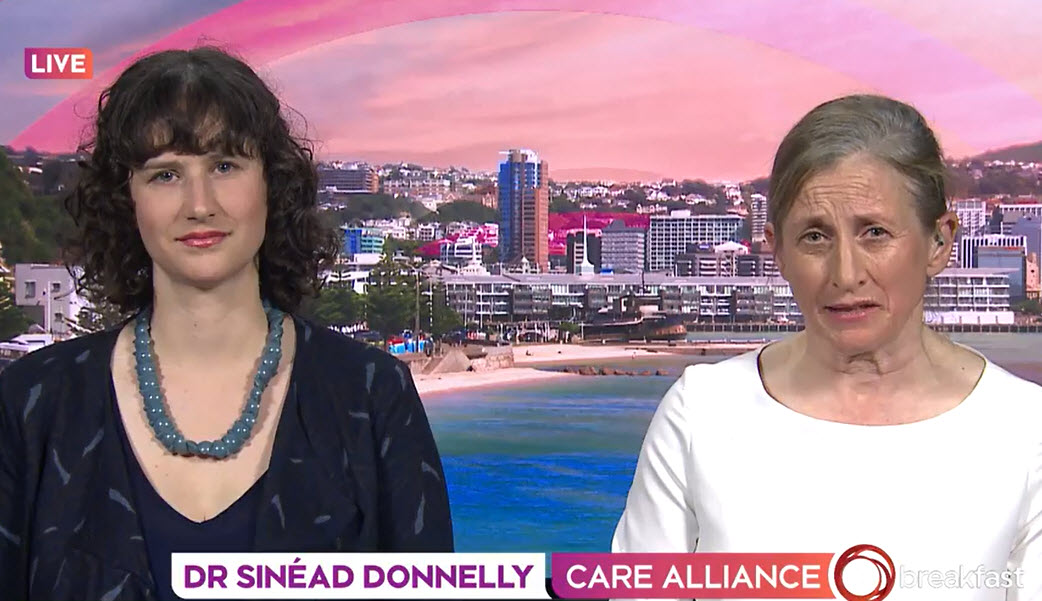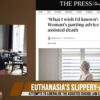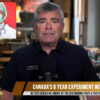
TVNZ One News 18 September 2020
Family First Comment: One is a ‘researcher’. The other is a real doctor – a palliative care specialist with real world experience and dealing daily with the care of actual people.
WATCH as she DESTROYS the argument of the pro-euthanasia academic!
“We care for people who are facing their death every day. … We live in the real world. When we read this act as it’s written and apply it to the real world, it leaks. It’s not waterproof or safe in any way. There are multiple reasons and multiple risks we’ve identified.” She said it could be difficult to judge whether a person was being coerced into assisted dying because coercion can be subtle.
“We care for people who are facing their death every day. … We live in the real world. When we read this act as it’s written and apply it to the real world, it leaks. It’s not waterproof or safe in any way. There are multiple reasons and multiple risks we’ve identified.” She said it could be difficult to judge whether a person was being coerced into assisted dying because coercion can be subtle.
Two euthanasia experts spoke to TVNZ1’s Breakfast about their views on assisted dying ahead of the End of Life Choice Act referendum in this year’s election.
Care Alliance’s Dr Sinead Donnelly, a palliative care doctor and senior lecturer at the University of Otago, outlined the arguments against the act. Care Alliance is made up of a range of organisations, including providers of end-of-life palliative care in New Zealand.
Donnelly said she was opposing the act as it was written.
“We’re concerned about the risk and we don’t believe that it’s safe,” she said.
When asked why she believed the act was unsafe, despite the High Court and lawyers saying there were more than 45 safeguards, Donnelly said the Care Alliance was looking at it from a practical view.
“We [at Care Alliance] care for people who are facing their death every day. … We live in the real world.
“When we read this act as it’s written and apply it to the real world, it leaks. It’s not waterproof or safe in any way. There are multiple reasons and multiple risks we’ve identified.”
She said it could be difficult to judge whether a person was being coerced into assisted dying because coersion can be subtle.
There are also challenges to making a prognosis that someone only has six months left to live, Donnelly said.
“Prognosis is an estimate. International literature and our own daily experience shows we’re often wrong about prognosis.
“How can you create a safe law when the consequences are the death of a person with such imprecise so-called safeguards?”
Donnelly said, in her experience, it was common for people to feel as if they were a burden.
“I feel they’re actually going to feel a greater burden. They now have to choose, ‘Do I ask for this or not?’”
She said it was already legal for people to ask for treatment to be stopped.
She said the palliative care system is rapidly developing but it is “chronically underfunded” in New Zealand, and there are inequities to accessing quality care.
This means people may not have a true choice between palliative care and euthanasia, Donnelly said.
READ MORE: https://www.tvnz.co.nz/one-news/new-zealand/experts-discuss-arguments-and-against-assisted-dying-ahead-election-referendum



